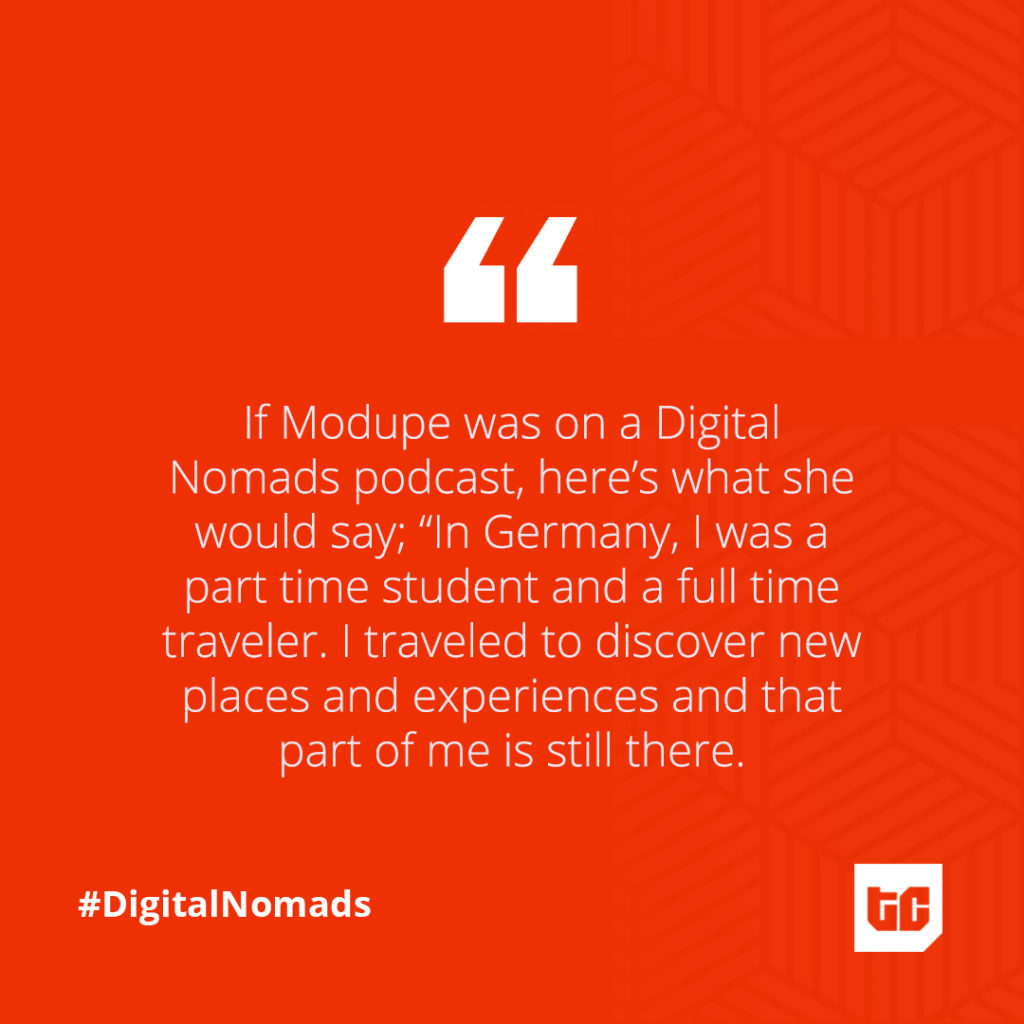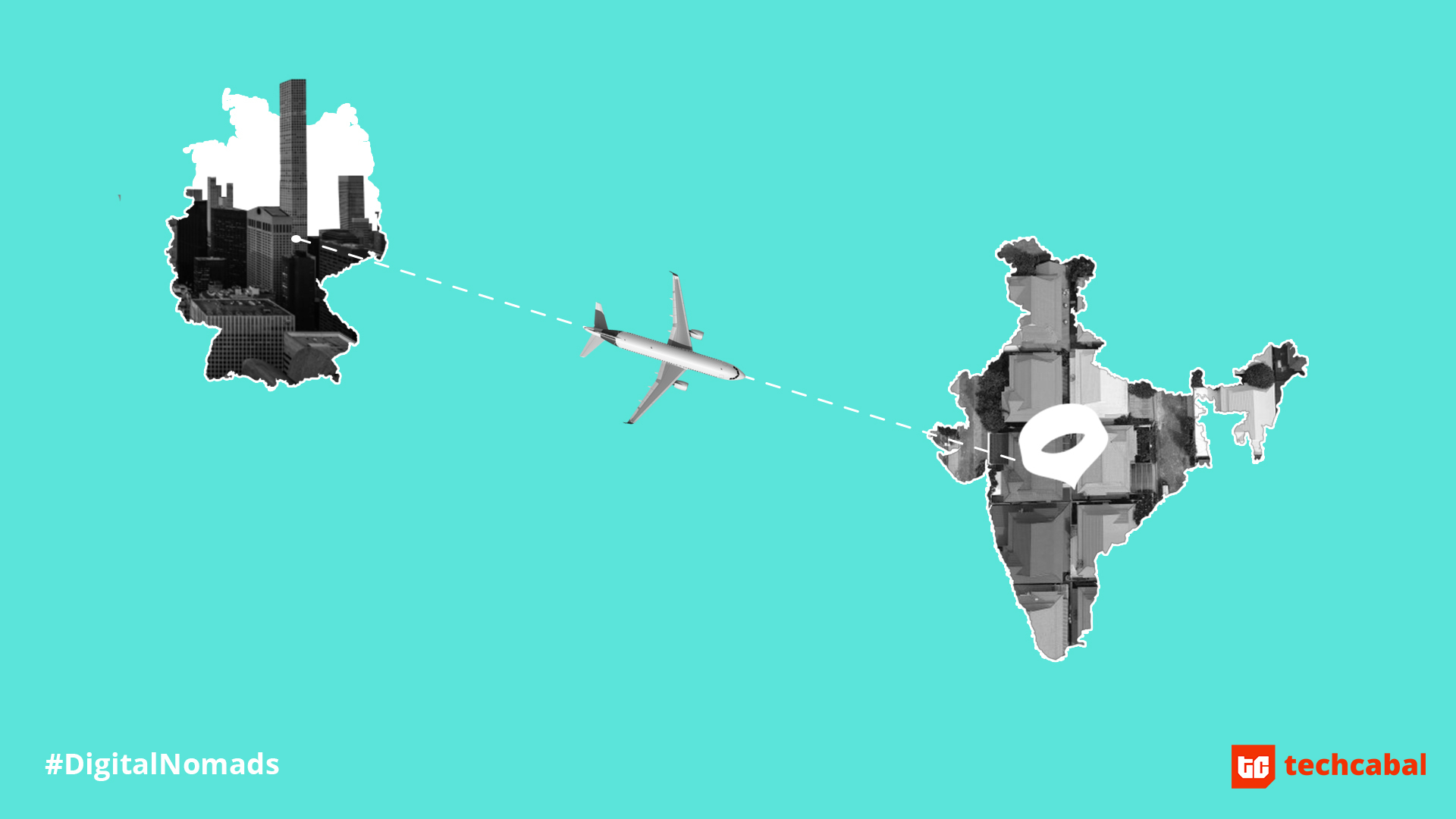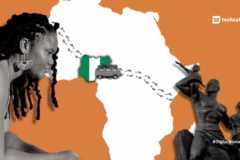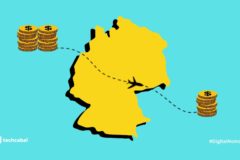“Home wasn’t a set house, or a single town on a map. It was wherever the people who loved you were, whenever you were together. Not a place, but a moment, and then another, building on each other like bricks to create a solid shelter that you take with you for your entire life, wherever you may go.” – Sarah Dessen
Every week, this column shares the experience of Africans who leave their home countries to live, work and study in other interesting countries. Last week, I shared some thoughts on the idea that some countries are more interesting than others.
This week, my throwaway thought is about “home,” and where home should be if you lay down roots in more than one country.
The experience of Modupe, a Nigerian woman born and raised in Lagos drives this question.
As a ten-year-old, she moved some 4,000 kilometers to Germany, and like many of the digital nomads I’ve spoken to, has some travel experience in her early years.
“I grew up in a family where it was the normal thing to travel. My parents traveled a lot for work, and it was clear at some point that it was going to become my path,” Modupe tells me.
It’s realistic to make this kind of guess when you get on an aeroplane at age 10 to visit Switzerland and Austria before heading to Germany, her second home. But Germany didn’t automatically offer itself up as home; first the language barrier.
“I couldn’t speak a word of German when I moved here and I remember clearly that the language sounded weird. I couldn’t make anything of it because it was my first time learning a language outside of Yoruba.”
She has since crossed the language hurdle. When I say “danke” in one of our text message exchanges, an excited Modupe asks if I speak German.
Almost as though her loyalty to the idea of home was being tested, Modupe got an opportunity to move back to Lagos in 2016.
“I was in Germany for 12 years before I went back to Nigeria for two weeks. It was a life changing experience.”
If you’re wondering if there was culture shock in experiencing Nigeria again after 12 years away, Modupe says there was none.
“I used to read a lot about Nigeria before I went back. I knew a lot about Nigerian pop culture, I listened to the music and I found a way to connect back home. I had researched where to get my hair done, where to get frozen yoghurt, I looked up everything.
“That’s the beauty of social media, at least for my generation, that you’re able to check up on those things and experience them. Sometimes you’re disappointed, because it’s not as nice as it looks on social media, but it’s good to know.”
Experiencing Lagos for those two weeks gave a sense of what it would feel like to live there. So, in 2016, Modupe accepted a full-time job offer that would bring her back to Lagos.
Modupe’s note on identity; while I was in University, I used to host women and we would have conversations about identity and belonging. After one of those meetings, I opened a website to talk about what it feels like to be a black woman growing up in Germany.
The website was only the first step, there was still some uncertainty about how she wanted to present these ideas.
“When I moved to Nigeria in 2016 and started working in the cultural space, I became a lot more confident and the idea of purpose kept growing and evolved into a podcast.”
Modupe’s podcast shares the experiences of people who had moved to different countries where they had to learn new languages.

If Modupe was on a Digital Nomads podcast, here’s what she would say; “In Germany, I was a part time student and a full time traveler. I traveled to discover new places and experiences and that part of me is still there.
“I grew up in a small city, surrounded by bigger cities. From my city, you could get a ticket that would take you to the Netherlands. You could get a ticket to Europe or get a cheap flight to the U.K. I did my semester abroad in the United States and interned at the Nigerian embassy in Belgium.”
We don’t dwell on Lagos except to agree that it is a city that can swallow you whole and how it took all of six months to find a house.
House hunting in Lagos is an extreme sport. We’ve covered Lagos in detail here.
Instead, Modupe tells me about Germany and her tech experiences there.
“Germans are a bit more reserved when it comes to new technologies. They are not as open as the Chinese. Things as simple as credit cards weren’t popular a few years ago.”
“Germany also has a lot of bureaucracy so the first thing you’re welcomed with in Germany is paper.”
Germany is the antithesis of a paperless country; it is not called the home of bureaucracy for nothing. While you can book a train or bus ticket with your smartphone, if you have a complaint about the ticket, be prepared to fill a form or call the ticketing company. It could take several weeks to get a response.
“As long as technology is progressing, technology is not super crazy here. Uber came to Germany years after it came to Nigeria and right now, they’re not in all cities because of the taxi unions.”
An excerpt on Uber regulations in Germany; Unlike in other countries, Uber in Germany is not allowed to let nonprofessional drivers offer rides in their own cars, the result of an earlier court ruling. It operates in only a handful of large cities under an alternative business model of using licensed rental car and taxi companies.
Yet, for all of Germany’s red-tape, the COVID-19 pandemic is forcing some necessary changes. While the conversations COVID-19 is bringing to the fore in Germany are about administrative issues, the stakes are higher in India, Modupe’s next stop after working in Nigeria for three years.
“I came to India for the first time in 2019 after I got a role here. The first time I came to Delhi in May, I was supposed to be here for five days to get an apartment but an issue with the airline meant I spent two days. I headed back home, to Germany. Home is relative sometimes and for me, India is home right now. Delhi is where I have an apartment and it’s the only place I have a bed I can call mine.”
“That is home. Home is wherever you feel comfortable.”
While moving from Germany to India may present a shock, most of that is numbed by experiencing Lagos. There are many parallels between Delhi and Lagos: the tricycles (now banned in Lagos), the traffic and a lot of people.
Modupe’s note on Delhi; small talk is not a thing in Delhi. It’s not like Nigeria where greetings are important. You could say good morning to a guard at your office building and they would not reply. Greetings and pleasantries are not a big thing here; people go about their business.
Unlike Lagos, transportation in Delhi is organised.
“The metro works quite well, I use it sometimes, but most times, I use an Uber. The cost is pretty decent so it makes sense because the metro station is some way off.”
As we talk about her experiences in India, Modupe is careful to add that her experiences may be different from the experiences of other people outside Delhi. She says she consciously tries not to live in a bubble.
“This lockdown is an example. My friend lives in the campus of an institution and she was telling me about how she had to queue for hours at the supermarket. For me, the market by my house was fully stocked. It was unbelievable for me.”
If you’re wondering about the long queues, it’s because India’s strict lockdown rules brought delivery services to a standstill. A lot of online stores needed extra permits to get their drivers on the road. India is home to e-commerce giants like Amazon, Flipkart, Myntra, PayTM, Limeroad and a host of others.
It means you can do a lot of things online. “I’m a big fan of how you can do so many things online. I order my meat online, and they bring it to me and I know where the meat comes from. India is definitely the top country for online shopping.”
Modupe’s everyday life in India: I get to the office using an Uber and pay with something called PayTM. At the office, I also use PayTM to pay for my lunch and although the metro system doesn’t have an app, there’s a lot of tech in everyday life here.
The internet works and it’s cheap, I pay 2000 Rupees for my home internet for a big package which I can never finish. India also has the cheapest mobile data plans in the world.
While India’s ICT chops are not in doubt, Modupe provides a counterbalance; for a country that prides itself on ICT, its online visa process is choppy.
“Your first touch with the country is applying for a visa and on their website, they say that the system doesn’t always work properly. They warn you that if you’ve made a payment and it doesn’t go through, you should wait a few hours before trying again.
Also, some links on the website don’t work.”
So where does India rank for her tech experiences? That’s a hard ask, especially now that the pandemic has shown that with great internet, you can get work done regardless of your location.
While she doesn’t want to rank India, Nigeria or Germany on a scale of 1-10 for her tech experiences, she works through what each city offers.
“In Lagos, the electricity can be unstable, so I would say India ranks top for my tech experiences. There have been cases in the past weeks in Germany where we have had poor internet.”
“The second would have to be a tie between Nigeria and Germany.”





















